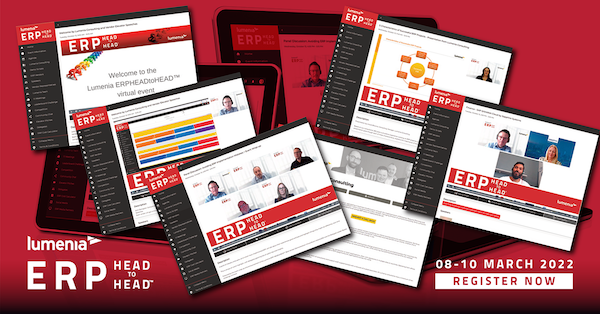Get 2019 ERP Pricing: 45 different ERP systems profiled including Epicor, Microsoft, SAP and more. Click to download your free guide.
In this internet-driven world, more and more organizations are considering migrating IT services to the cloud because of the feasibility and benefits it offers. Businesses who are still using the traditional In-house ERP solutions are far behind the ones using the on-cloud software. The reason is obvious!
Cloud ERP is like an investment vehicle for organizations. Why? Because it eliminates unnecessary expenses, consolidates billing, ensures disaster recovery and offers automatic updates. They find it expedient enough to have a transition from on-premise or in-house software to on-cloud.
In this blog, we will talk about what are the explicit reasons for moving from on-premise ERP to the cloud ERP. Well, there are many whys and wherefores of doing this critical transition.

1. No unnecessary expenses
When you have the technology, why don’t you use it? Cloud ERP is a buzzing trend in the global market. One of the major reasons why businesses are inclined towards it is – reduced cost.
While on-premise or in-house ERP implementation can cost you an arm and a leg, cloud ERPs are comparatively less expensive. We will explain how!
- Instead of investing in multiple disconnected systems at different offices or locations, cloud ERP combines every solution on one platform that can be accessible from anywhere. So, businesses will not have to invest in a huge IT personnel & multiple tools.
- An off-premise data center looks after the maintenance of the solution. No cost on setting up the hardware, upgrading software and maintaining servers or downtime.
- It lets you focus on hiring the right people who can dedicatedly work on the major tasks instead of being entangled in the monotonous jobs.
- According to Forrester, the global public cloud market was $146B in 2017 and is predicted to be $178B in 2018. This means it is growing at a rate of 22% CAGR (compound annual growth rate).
- It is understandable that moving to the cloud ERP from a painstakingly built on-premise solution is not a cakewalk. You should have the clarity about – “Why” are you taking this step and, is it fruitful enough?
- Cost is an important factor for every business owner. Considering this, cloud ERP is the best option to seek.
2. Cloud ERPs are Flexible and Agile
With cloud ERP, multiple options are open to innovation. Emerging technologies such as the Internet of Things, Blockchain, Big Data, and Robotics etc. are integrated with the cloud to create a flexible manufacturing environment. It encourages modernization and new experiments.
Cloud ERP makes it significantly easier to adapt to innovative technologies speedily, as compared to the conventional in-house ERP. It allows businesses to host state-of-the-art technologies on the cloud to leverage so that they can use their own smart contracts and technologies while keeping the infrastructure agile and flexible.
3. No work barrier with remote data accessibility
- Cloud allows employees to update status and access the data with smartphones, tablets and other devices
- Sales executives, working from the far-flung corner of the world can easily communicate with plant managers to resolve issues or confirm the placed orders
- Closing deals become easier with accurate, real-time data access. It helps sales personnel create better commitments and be on it stringently
- It increases the productivity of end-user and removes the communication barriers – this indeed promotes collaboration and a healthy work environment
4. Data security
Data is the essence of modern businesses, without which success is not possible. Here’s why cloud ERP offers more security and is worth the money –
- Cloud ERP providers maintain distributed and synchronized data centers across the world to provide data security against unforeseen attacks such as Ransomware. It handles large-scale data with ease.
- It frees the IT team from updating software. Cloud ERPs rely on managed and shared server architectures, which are embedded in the systems that are installed in the background. It ensures security.
- Cloud solutions support in-stream packet scanning, multi-layer firewall testing, application vulnerability, facility security, and multi-layer firewall testing.
5. Efficiency
In simple words, efficiency is doing more with less or limited resources. This means you do not always require an upsized team or unnecessary multiple devices. If one software can complete multiple tasks, why to invest time and money in so many?
Shorter time-to-market
When you deploy cloud ERP in your company, the implementation process is less time-consuming and complicated. The go-live date will be nearer, and the end-users can start using it quickly.
Focus on the major projects
It frees your IT department from the shifts responsibilities of operation, maintenance and servicing of the software repeatedly. Employees can focus on the major capacities that can add more value to the organization.
Final thoughts
Choosing a cloud partner with the right capacity is necessary. Needless to say, that there are myriad of cloud ERP providers all over the world. Moreover, it is a tough task to opt for the best one. Thus, businesses should be very careful while choosing the cloud ERP provider.





